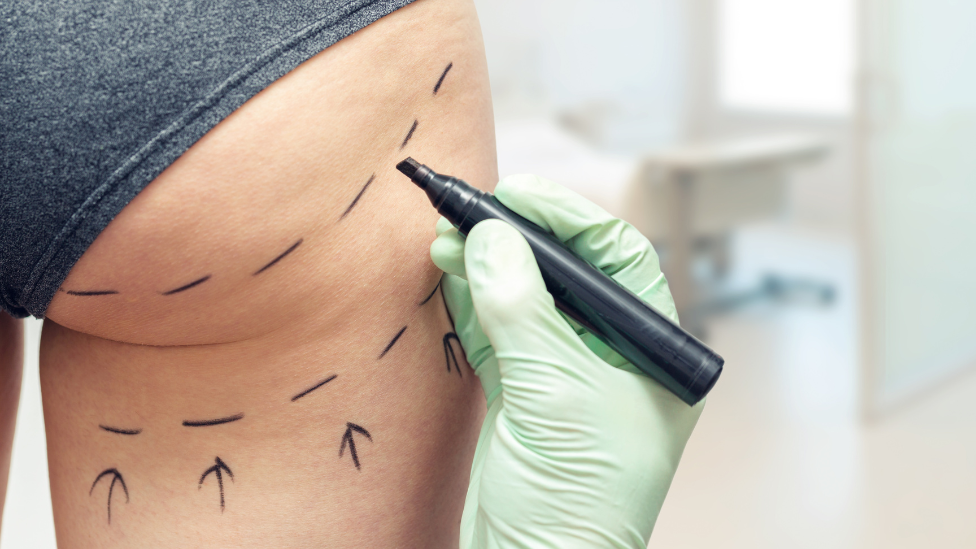Brazilian butt lift firms banned after woman in hospital

A company which performed a Brazilian butt lift (BBL) in a hotel function room which left a woman in hospital has been banned from carrying out the procedures in Glasgow.
The woman required emergency treatment after she received a BBL in March.
Glasgow City Council said environmental health officers had served prohibition notices on two companies and an associated individual practitioner, preventing them from carrying out "high risk" BBLs and breast augmentation procedures anywhere within the city's boundaries.
Other local authorities in Scotland and around the UK have also received complaints about similar procedures, including the City of Edinburgh Council.
At the end of April, the City of Edinburgh Council warned people who were about to have a non-surgical BBL in the city to contact staff due to concerns over the procedure.
Prohibition notices prevent those involved from carrying out any BBL or breast augmentation procedures within any premises or locations within the council area, until evidence can be provided that these procedures will be carried out safely.
If those involved fail to comply with these notices, a report will be submitted to the procurator fiscal for consideration of a prosecution - where the offender could face imprisonment, a significant fine, or both.
Councillor Ruairi Kelly, Glasgow's convener for neighbourhood services, said: "Action has been taken by the council's environmental health team in a bid to prevent procedures being carried out in unsuitable and non-sterile locations.
"Three prohibition notices have been served on two companies and an associated individual practitioner."
The companies and individuals concerned have a 21-day period within which they could appeal.
What is a Brazilian butt lift?
Brazilian butt lifts or BBLs are used to make buttocks bigger, more rounded or lifted.
Those carrying out the procedure insert silicone-filled implants and/or inject fat transferred from other parts of the body.
The surgery, as with many cosmetic procedures, can be expensive, but liquid or non-surgical BBLs are a cheaper option.
In that version, hyaluronic acid, which is used in dermal fillers, is injected to manipulate the size and/or shape of the area.
But if not performed in a proper way, it can lead to serious health complications.
Why is it dangerous?
The NHS says BBLs have the highest death rate of all cosmetic procedures.
Experts warn that injected fat transferred in the procedure can cause a blockage in a blood vessel in the lungs known as a pulmonary embolism.
In 2019, a woman from Norfolk died at a private hospital in Istanbul while undergoing the procedure.
The British Association of Aesthetic Plastic Surgeons (BAAPS) issued new guidelines to members, external in 2022 following a four-year moratorium on BBLs due to the high death rate.
It now recommends surgeons only carry out a procedure called superficial gluteal lipofilling (SGL). While it uses fat collected from the body, this is only injected below the skin, whereas BBLs insert fat deep into the muscles.
It also recommends that surgeons should only carry out SGLs while simultaneously using ultrasound scans so they can see where the cannulas are going.

